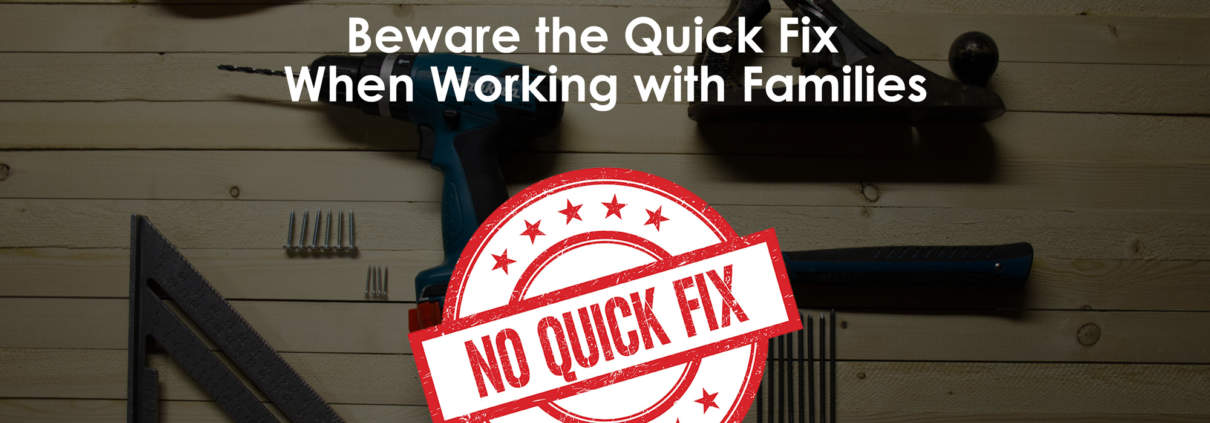Spotting Something “Wrong” Is the Easy Part
Every once in a while I see a couple of cases in quick succession that have a common thread, and that makes writing something here each week even easier for me.
As I think about the commonalities, I invariably recall other analogous situations where I’ve been involved in some fashion, and that allows me to paint an even more colourful picture for you.
We’re going to be looking at working with families where it may seem obvious what’s needed, and the temptation for a quick fix is there, but where we need to take a deeper look before reaching for the Band-Aid solution.
OH, Look! I Found THE Problem
I recently started working with group of three siblings, who’ve been working together successfully for over two decades, having bought the company from their parents years ago.
These people were referred to me by some other local professionals that I know, which is always nice.
After I began the work, I encountered one of the folks responsible for the referral, who shared some of their ideas of what the family needed to do.
Everything they mentioned was perfectly logical and made theoretical sense, and all their ideas and advice were valid.
And, despite all of the positives, most of it is probably useless for the particular situation those siblings are facing at this time.
Spotting “the problem” is the easy part.
In any family business situation, it’s actually quite easy to find something that could be done more formally or professionally.
Look at What’s Going Well
This made me think about a podcast I hosted a while back where my guest was Ken McCracken, a long time family business advisor from the UK.
Ken talks about the “Natural Advantage” of family business, and I really think he’s on to something, and most of us who work with families would do well to heed his counsel.
(Go Here for The Natural Advantage of Family Business podcast)
The gist of it is that they’ve been doing a lot of things right to get where they are and to have built the business that they are operating.
Let’s give them credit for that, and not be tempted to run in there like a bull in a china shop because we are so smart and we can see something that we think could be done better.
They also likely already have a pretty good idea of what they could be doing differently, and if they ask for help with that, then fine, work with them to address that.
But otherwise, try to resist the urge to look smart and point out your bright ideas.
Just Give Me That “Missing Piece”
As an example, I am just about to embark on a new mandate where the patriarch knows full well that he and his family need to work on their family governance, as he prepares to transition the ownership of the business he founded to his three offspring.
He knows that he needs for them to have a shareholders’ agreement, and some basic agreement on family governance (e.g. family charter, family compact, family constitution).
Unfortunately, he also believes that he should be able to simply “purchase” these things from a qualified third party.
Thankfully the members of the rising generation understand that the documents that will bind them are best to be co-created by them, and not delivered from on high from either a consultant or the guy they call Dad.
Simple Solutions Aren’t Sustainable
I want to conclude on another related request I had a few years ago that I wrote about in When Structural Solutions Aren’t Sufficient.
In that case, an overseas colleague was looking for a way to structure the operations of a business being run by two siblings who were not on speaking terms.
Well, sure, I guess that there may be some way for them to structure their company so that they can continue to operate without ever speaking to each other, but…. I really don’t think that’s the best way to address the issue at hand.
Bottom line, if you think you can solve a family dynamics problem with a structural solution, your chances of success are miniscule at best.
But once again, it is tempting to reach for such a quick fix, because it avoids all that messy work that most people want to avoid.
Too bad it doesn’t work.




